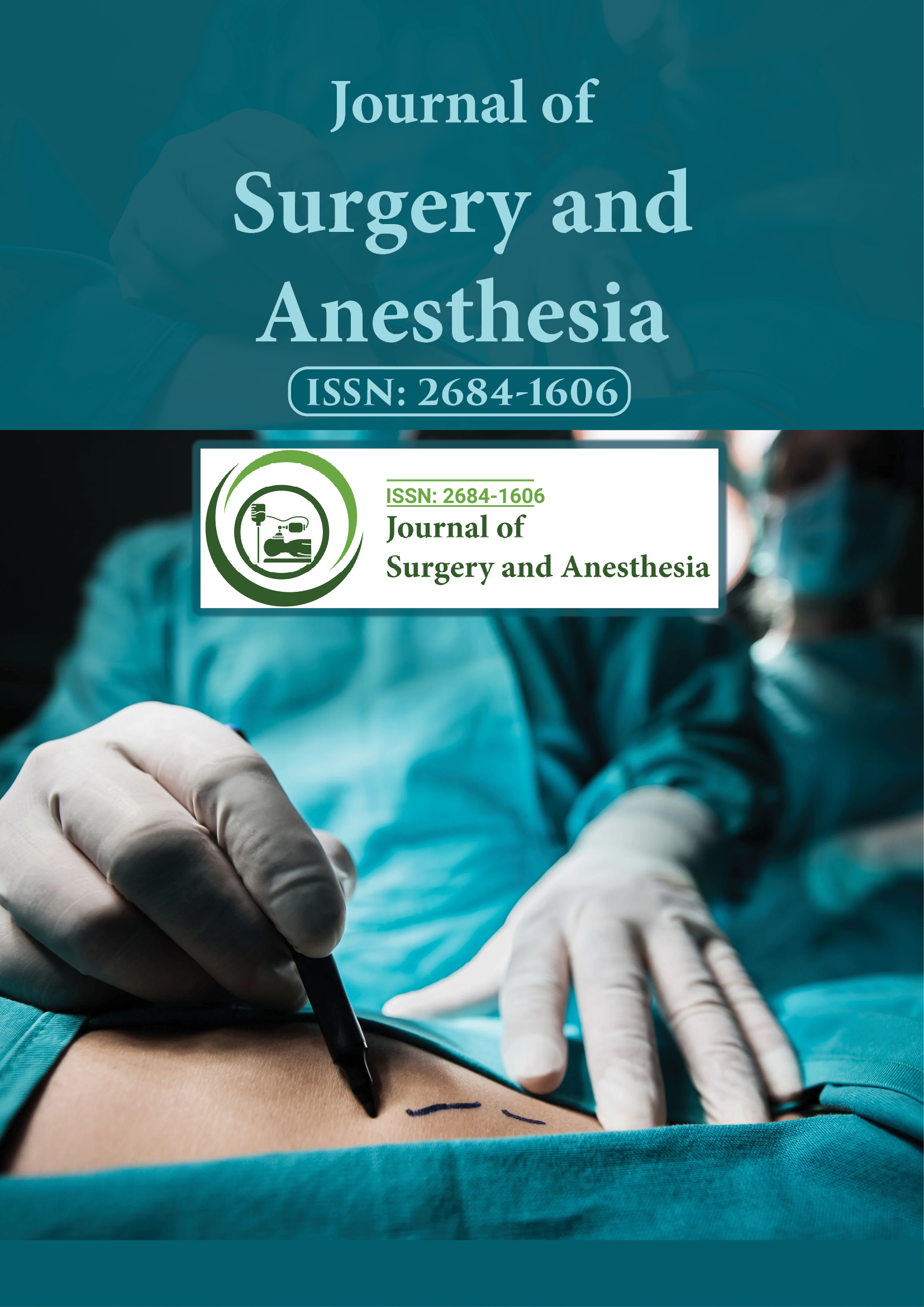Indexed In
- Google Scholar
Useful Links
Share This Page
Journal Flyer

Open Access Journals
- Agri and Aquaculture
- Biochemistry
- Bioinformatics & Systems Biology
- Business & Management
- Chemistry
- Clinical Sciences
- Engineering
- Food & Nutrition
- General Science
- Genetics & Molecular Biology
- Immunology & Microbiology
- Medical Sciences
- Neuroscience & Psychology
- Nursing & Health Care
- Pharmaceutical Sciences
Opinion Article - (2025) Volume 9, Issue 1
Anesthesiologists Advancing Patient Outcomes in Intensive Care
Paul Serrato*Received: 01-Mar-2025, Manuscript No. JSA-25-29050; Editor assigned: 03-Mar-2025, Pre QC No. JSA-25-29050 (PQ); Reviewed: 17-Mar-2025, QC No. JSA-25-29050; Revised: 24-Mar-2025, Manuscript No. JSA-25-29050 (R); Published: 31-Mar-2025, DOI: 10.35248/2684-1606.25.9.282
Description
Anesthesiology, traditionally associated with perioperative management, has emerged as a foundation in the management of critically ill patients. In the high-stakes environment of critical care, anesthesiologists bring a unique blend of skills expertise in pharmacology, airway management, hemodynamic monitoring, and resuscitation. This dual role has redefined their scope from the operating theatre to the Intensive Care Unit (ICU), where rapid decision-making, physiological precision, and multidisciplinary coordination are essential.
Anesthesiologists are often at the forefront of life-sustaining interventions in the ICU. Their proficiency in airway management and mechanical ventilation is critical, especially in conditions such as Acute Respiratory Distress Syndrome (ARDS), sepsis, and traumatic injuries. In patients with complex comorbidities and hemodynamic instability, anesthesiologists’ ability to titrate anesthetic and sedative drugs based on minute-to-minute changes plays a vital role in maintaining stability and preventing complications. Techniques such as ultrasound-guided vascular access, transoesophageal echocardiography, and point-of-care ultrasound have become indispensable tools in the ICU arsenal.
Pain and sedation management, traditionally within the anesthesiologist’s purview, are fundamental components of critical care. Maintaining adequate sedation while preventing over sedation is a delicate balance, as both extremes can lead to adverse outcomes, including prolonged ventilation, delirium, or inadequate pain relief. Anesthesiologists are trained to optimize these parameters using protocols that minimize drug accumulation and enhance patient outcomes. Additionally, the use of multimodal analgesia integrating regional techniques, non-opioid medications, and targeted therapies has improved the comfort and recovery of ICU patients.
Anesthesiologists also play an essential role in hemodynamic management, especially during shock states or major fluid shifts. Through invasive and non-invasive monitoring, they assess cardiac output, fluid responsiveness, and tissue perfusion, allowing them to tailor interventions with vasopressors, inotropes, or fluid therapy. Their understanding of pharmacokinetics and drug interactions ensures the safe use of medications in patients with altered metabolism or multi-organ failure.
During the COVID-19 pandemic, the significance of anesthesiology in critical care was dramatically amplified. Anesthesiologists led airway teams, developed ventilator strategies, and implemented sedation protocols under resource-constrained conditions. Their involvement in establishing ICU workflows and training non-ICU staff underlined the versatility and leadership of the specialty in public health crises.
Moreover, the role of anesthesiologists is increasingly tied to ethical decision-making in the ICU. As experts in end-of-life care, they facilitate discussions on advanced directives, palliative sedation, and withdrawal of life support, working in close collaboration with patients’ families and the broader care team. Their presence in multidisciplinary rounds ensures that decisions are patient-centered, evidence-based, and ethically sound.
In recent years, research and innovation in anesthesiology have also contributed to the evolution of critical care. Advances in neuro-monitoring, sepsis biomarkers, goal-directed therapy, and artificial intelligence assisted monitoring systems are enhancing the precision and personalization of care. As perioperative medicine evolves to encompass enhanced recovery and postoperative ICU management, anesthesiologists are ideally positioned to bridge surgical and critical care pathways.
In conclusion, anesthesiology in critical care represents a vital intersection of technical expertise, physiological understanding, and compassionate care. Anesthesiologists are not only proceduralists but also critical thinkers and leaders in intensive care environments. Their contribution extends far beyond the operating room, reinforcing the multidisciplinary framework that is essential for the survival and recovery of the most vulnerable patients. As the healthcare landscape continues to evolve, the integration of anesthesiology into critical care will remain central to delivering safe, effective, and humane care in the ICU.
Citation: Serrato P (2025). Anesthesiologists Advancing Patient Outcomes in Intensive Care. J Surg Anesth. 9:282.
Copyright: © 2025 Serrato P, et al. This is an open-access article distributed under the terms of the Creative Commons Attribution License, which permits unrestricted use, distribution, and reproduction in any medium, provided the original author and source are credited.
